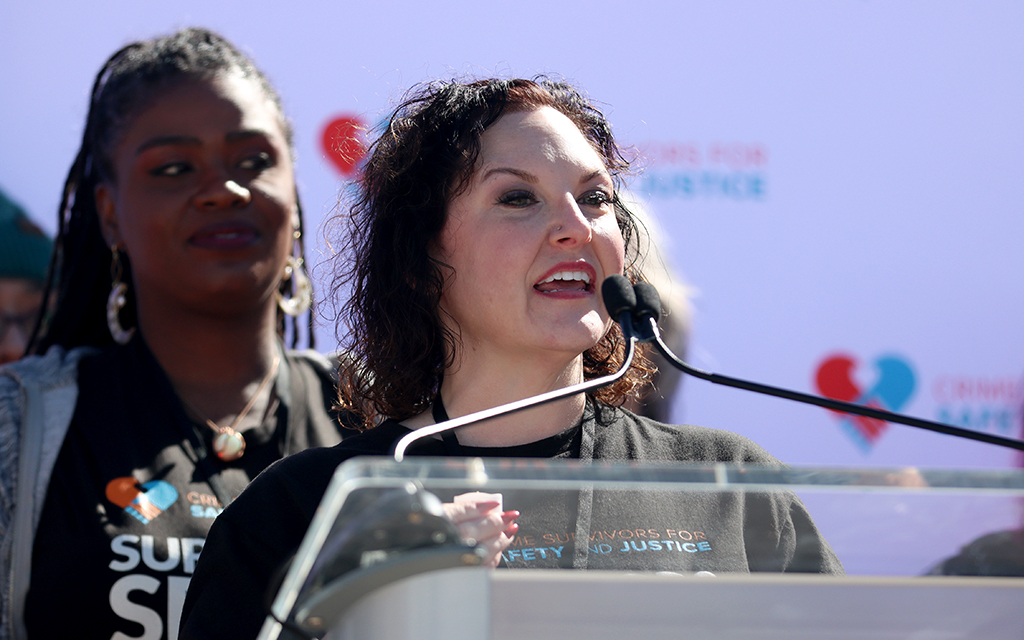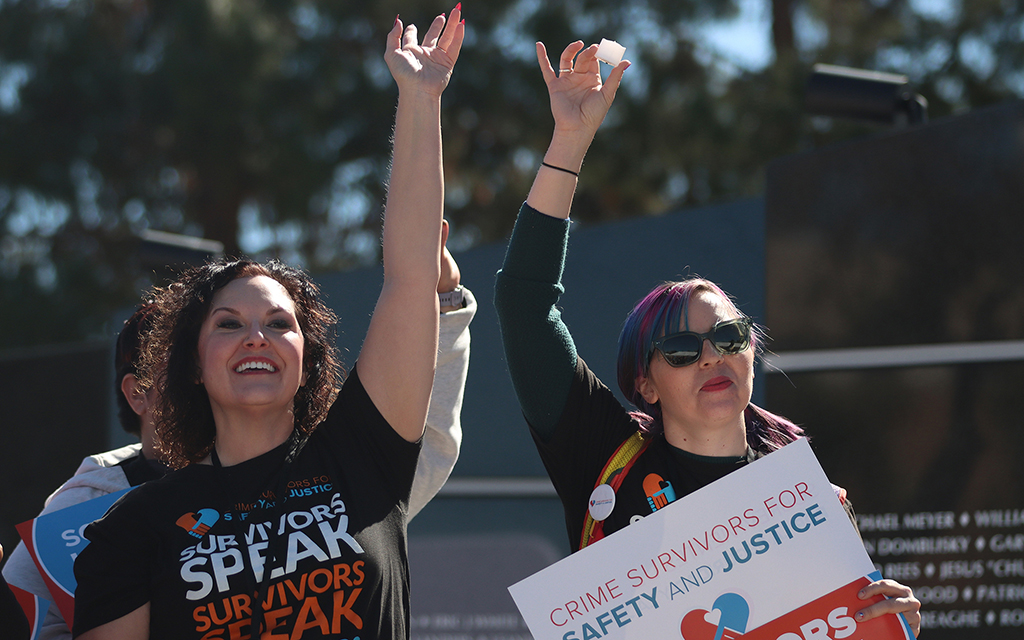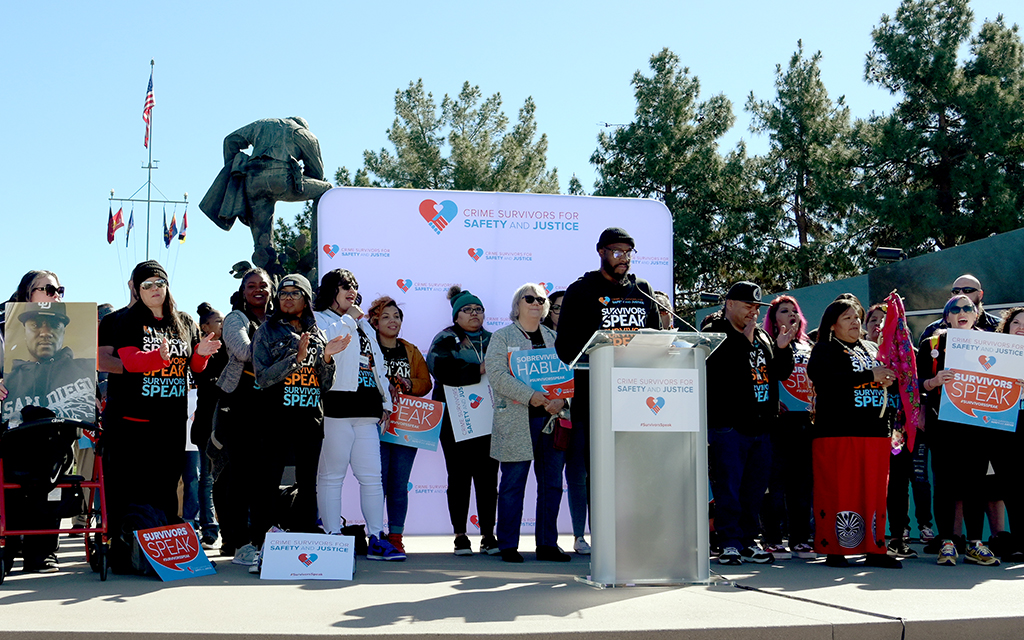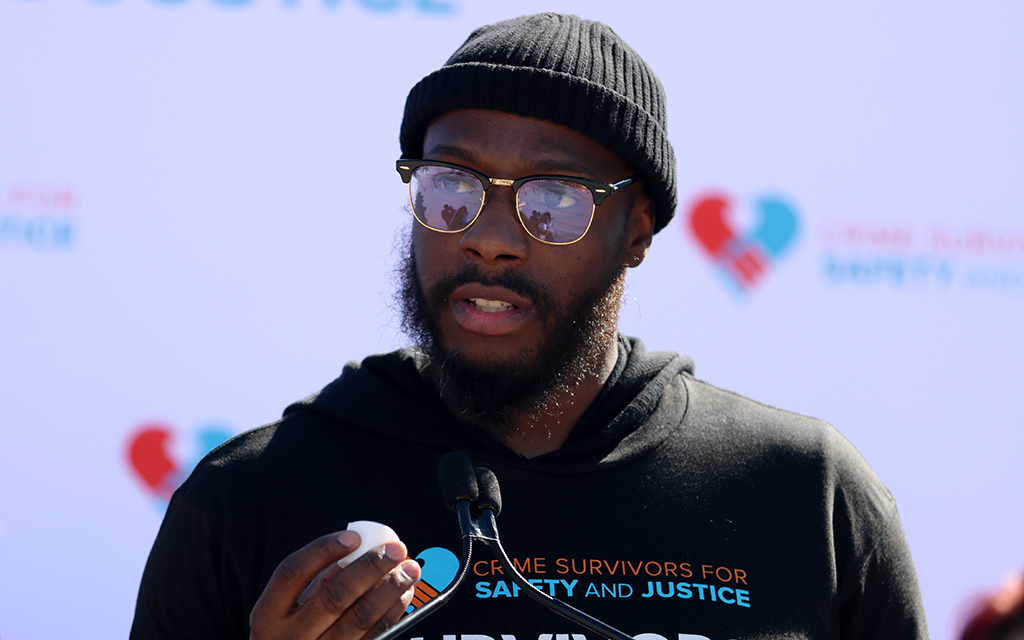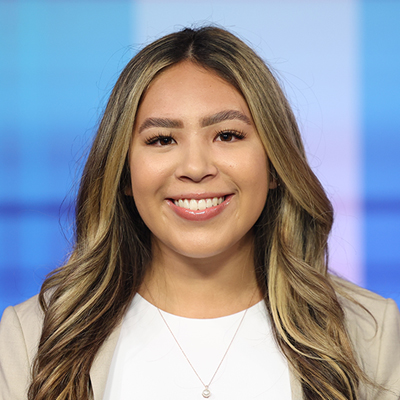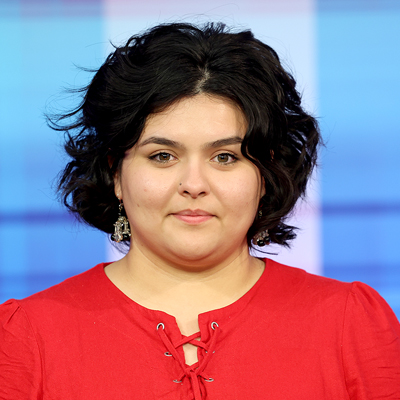PHOENIX – Crime survivors and their families from across Arizona gathered at the state Capitol Monday asking lawmakers to fund trauma recovery centers that offer therapy and social services.
Arizona members of Crime Survivors for Safety and Justice, who support all victims of violence, marched outside the Capitol building during a “Survivors Speak” event, demanding better support and funding. Survivors shared their stories, and family members honored lost loved ones by holding up pictures and lighting candles.
“These are folks who wake up every day full of courage, tenacity and hope — hope that we can save others from the experiences we’ve had,” Rep. Jennifer Longdon, D-Phoenix, said during the news conference outside the Capitol.
Longdon said she is supporting two bills by two Valley Republican colleagues, including HB 2612 sponsored by Rep. Steve Montenegro that would fund a pilot trauma center program, and HB 2429, sponsored by Rep. Justin Wilmeth, that would remove barriers to occupational licenses for those with sealed or set-aside records.
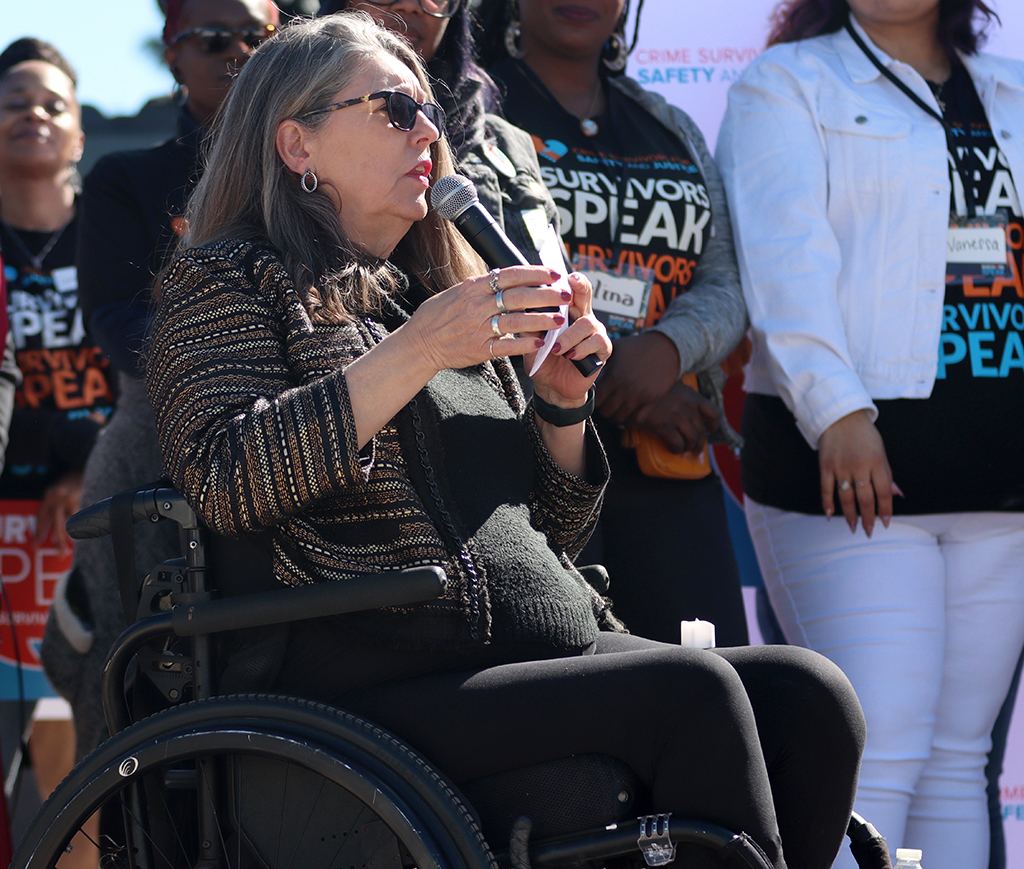
Rep. Jennifer Longdon, D-Phoenix, paralyzed in a 2004 drive-by shooting, said, “The call to action here today is very simple; we need a safer Arizona for everyone.” (Photo by Izabella Hernandez/Cronkite News)
“This year, the Legislature can bring a pilot trauma recovery center right here in Arizona so that we can assure that the cycles of victimization will come to an end. HB 2612 would provide the necessary funding to make that happen,” Longdon said.
As a victim of gun violence herself, Longdon spoke alongside the Crime Survivors for Safety and Justice and called the event “a movement” rather than a rally or political event. Longdon was paralyzed from a random 2004 shooting.
“You don’t get a book that says, ‘Hello, you’ve been shot, and these are all the things you are going to have to deal with now’ — anything from intrusive questions, overcoming PTSD (post-tramautic stress disorder), navigating the legal system or even a new financial system,” Longdon said in an interview following the news conference. “I still live with the unaddressed impact of my PTSD, because no one explained to me what PTSD was or how I was going to cope with it in my life.”
Aswad Thomas, national director of Crime Survivors for Safety and Justice, was supposed to play professional basketball in Europe when he became a victim of gun violence in Hartford, Connecticut.
“Those bullets ended my basketball career and nearly my life, and as I was recovering, I had no access to mental health services or any support to help me heal physically or psychologically,” Thomas said after the rally.
Katrina Smith, Phoenix chapter coordinator for CSSJ, said she wants crime victims and their families to have a seat at the table any time criminal justice laws are discussed.
“My husband was murdered, and I was not happy with how I was treated as a victim, so I am here to make things better for everyone,” said Smith, who hopes funding will come through this year for a local pilot trauma recovery center. She’s also pushing for legislation that gives more support to perpetrators of crime when they are released “because we know that crime and perpetrators of crime is a cycle of violence.”
More than 30 trauma recovery centers operate across the country, according to CSSJ. They offer services including medication management, legal advocacy and assistance, trauma-informed clinical case management, housing services, crisis intervention and group and family psychotherapy. Staff members often include psychiatrists, psychologists, social workers and social outreach specialists. The centers often are housed inside medical centers.
Longdon said trauma centers would provide numerous local jobs in addition to helping crime victims. She anticipates the biggest hurdle is funding, likely from “colleagues who consider themselves guardians of fiscal government.”
“The only way we can achieve true safety is if we commit to meeting the needs of the survivors and addressing the root causes of crime,” Longdon said. “We need a safer Arizona for everyone.”

